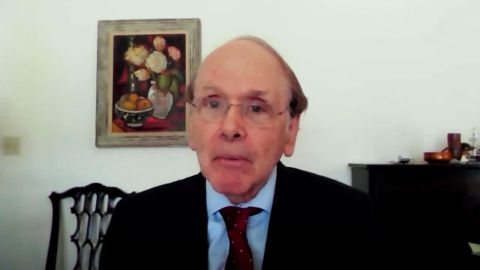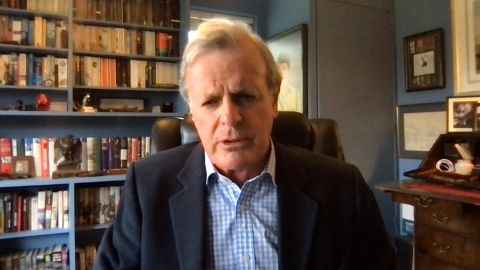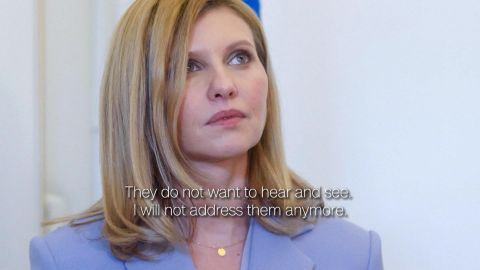Read Transcript EXPAND
CHRISTIANE AMANPOUR: And finally tonight, an exclusive conversation with Ukraine’s first lady, Olena Zelenska. We received written responses to a series of questions that we asked her. We couldn’t meet with her for security reasons when I was in Kyiv. But, first, I wanted to ask her, when was the last time she saw her husband, the president? A narrator has voiced her words.
(BEGIN AUDIO CLIP)
OLENA ZELENSKA, FIRST LADY OF UKRAINE (through narrator): Volodymyr and his team actually live in the president’s office. Due to the danger, my children and I were forbidden to stay there. So, for more than a month, we communicate only by phone.
(END AUDIO CLIP)
AMANPOUR: And then she described him as a wonderful father and support for her and said that he’s showing the same traits now leading Ukraine’s war effort. I also asked her what message she wants to give to Russia’s mothers and wives.
(BEGIN AUDIO CLIP)
ZELENSKA (through narrator): The level of Russian propaganda is often compared to Goebbels’ propaganda during the Second World War. But, in my opinion, it still exceeds, because, in the Second World War, there was no Internet and access to information, such as now. Now everyone can see the war crimes, for example, those committed by the Russians in Bucha, where the bodies of civilians with their hands tied simply lay in the streets. But the problem is that the Russians do not want to see what the whole world sees. So, that feels more comfortable. After all, it is easier to say, it’s all fake, and go drink your coffee, than to read the story of a particular person who died, look at her relatives and friends who are in grief. For example, read the story of one of the victims in Bucha, a woman named Tatiana, who was shot by a Russian bullet, and her husband, who asked the invaders to take away the body, but was beaten and thrown bound. How to make the Russians see this? I am more and more inclined to think that, unfortunately, you can’t. They are blind in belief. They do not want to hear and see. I will not address them anymore. The main thing for Ukraine today is that the whole other world hears and sees us. And it is important that our war does not become habitual, so that our victims do not become statistics. That’s why I communicate with people through foreign media. Don’t get used to our grief.
About This Episode EXPAND
Boris Johnson’s biographer discusses his fine for breaking COVID-19 lockdown rules. Sir Richard Shirreff analyzes the latest news on the Ukraine war. Christine Ockrent and Yascha Mounk discuss key elections in Europe. Daniel Yergin discusses how the war has impacted reliance on Russian energy. Ukrainian First Lady Olena Zelenska writes to Christiane in an exclusive correspondence.
LEARN MORE


